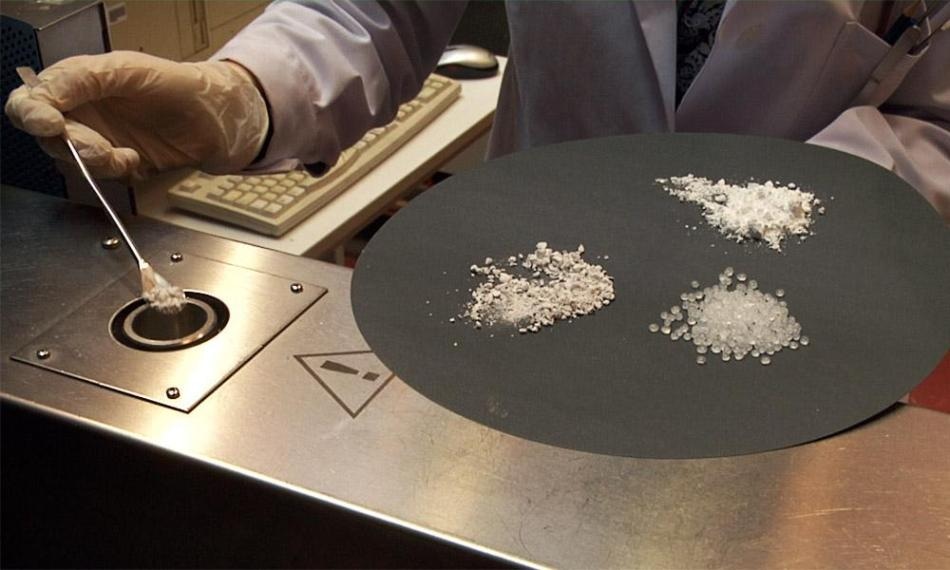Mar 31 2017
 Materials used for the manufacture of the ceramic electrodes of the batteries. (Credit: Universidad Carlos III de Madrid (UC3M))
Materials used for the manufacture of the ceramic electrodes of the batteries. (Credit: Universidad Carlos III de Madrid (UC3M))
A team of researchers from Universidad Carlos III de Madrid and the Council for Scientific Research (initialed CSIC in Spanish) have patented a technique for producing new ceramic electrodes for lithium-ion batteries that are more efficient, more resistant, cheaper, and safer than standard batteries.
Electric batteries are electrochemical devices that change chemical energy stored in electricity. They consist of one or a number of electrochemical cells, and each cell is composed of one positive (cathode) electrode and one negative (anode) electrode, separated by an electrolyte which allows the ions to travel between the electrodes.
Currently, lithium-ion batteries are the key electrochemical storage systems in electronic devices and the transportation sector.
What we have patented are new ceramic electrodes that are much safer and can work in a wider temperature interval.
Professor Alejandro Várez, Inventor, UC3M Materials Synthesis and Processing Research Group
It is a technique of creating ceramic sheets by means of a thermoplastic extrusion mold. “This technique allows making electrodes that are flat or tube-shaped, and these electrodes can be applied to any type of lithium-ion battery,” said Várez. Additionally, the cost of production is relatively low, and, according to its creators, it is easy to adapt to the existing production process, so the following step to industrialization would be instantaneous.
These ceramic electrodes comprise of only active material, which minimizes the risk of degradation and inflammation at high temperatures (more than 100 °C).
This is especially important in the case of electric vehicles, because if there is an accident and fire, conventional batteries can catch fire, and it is very difficult to extinguish. These new solid electrodes can’t burn, which contributes to improving the safety of the batteries.
Jean Yves Sanchez, UC3M CONEX Researcher, Université Grenoble Alpes (France)
When there are huge electrical consumption peaks, commercial lithium-ion batteries are prone to overheating and, in certain cases, even explode. The reason is that the electrolytes typically used comprise of organic liquid solvents that can catch fire, like the additives used for the manufacture of electrodes.
With our technology, however, solvents are not used during the fabrication process. In addition, if you compare them with conventional electrodes, the ones we obtain with this fabrication process are very hard and can’t be cut, which contributes to improving the solidity of the battery.
Jean Yves Sanchez, UC3M CONEX Researcher, Université Grenoble Alpes (France)
Another benefit of batteries that incorporate these new electrodes is their efficiency, according to tests performed by the researchers. These tests reveal an upsurge of specific capacity that is approximately three times the capacity of commercial electrodes with the same density.
Also, because this method enables the fabrication of high-density electrodes (ranging between 450 and 1000 μm), the storage capacity by area expands up to ten times the capacity of existing technology.
The inventors of the patent applied for are Alejandro Várez, Belén Levenfield, Jean-Yves Sanchez, Mª Eugenia Sotomayor and Wilmer Bucheli, from the Materials Synthesis and Processing research group, and José Manuel Amarilla, a researcher from the CSIC Madrid Institute of Materials Science. “The participation of the UC3M Science Park has been key because it has supported us in both the processing and commercialization of the patent,” said Várez.
Así son las nuevas baterías de ion-litio más baratas y seguras